2019 European elections: How many new MEPs might you get?
- Published
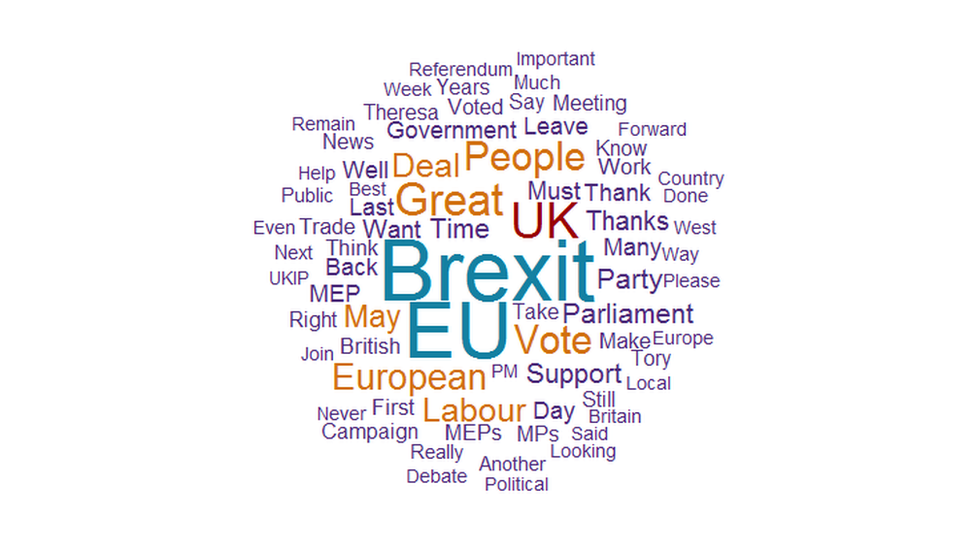
The word "Brexit" was tweeted more than 16,000 times in the most recent posts by the UK's MEPs
Four out of 10 current UK MEPs are not contesting the European Parliament elections. That means at least 30 of those elected from 23-26 May might either never take their seats or serve only a few months if the UK leaves the European Union by the end of October. However, voters are being urged not to see the elections as a "joke", as Brexit dominates the agenda.
Who can I vote for?
There are 72 UK MEPs currently serving, with one seat vacant. Of those, 43 are seeking re-election and there are 548 other new candidates.
In London 88 candidates representing 11 parties, including independents as one group, are vying for eight seats. That compares with 10 parties for three seats in Northern Ireland.
There are 23 parties in total, including independents as one group, but only 10 of them are standing in more than one region.

The Yorkshire Party is standing in Yorkshire only, the Animal Welfare Party and Women's Equality Party have only put up candidates in London and the Independent Network is only standing in the East Midlands. The Socialist Party of Great Britain has candidates in the South East only.
Three parties are standing in all 12 nations and regions - the Conservatives, Greens and UKIP.
Labour, the Liberal Democrats, Change UK and The Brexit Party are standing in all regions apart from Northern Ireland.
Who can't I vote for?
Half of the existing MEPs in the North West, West Midlands and South West are not standing again. Two Scottish MEPs are not standing for re-election and another, Catherine Stihler, resigned her seat in January to take up a new role.

Mary Honeyball, from the Labour Party, and Julie Girling, formerly a Conservative but now an independent, are two of the 30 MEPs who will not be standing for re-election.
Despite the possibility of a very short term for newly-elected MEPs - or even no term at all - they still think the election is important for the UK.
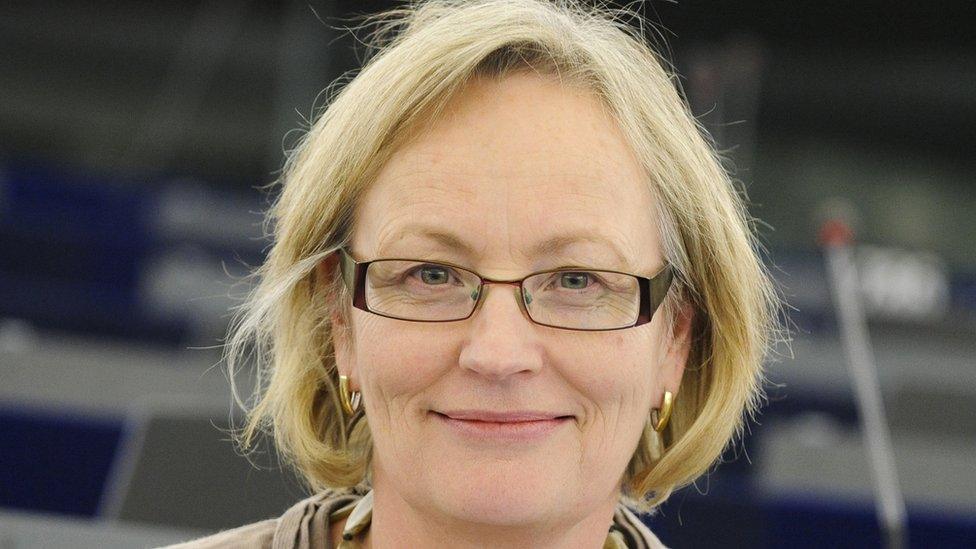
Julie Girling has stepped aside after 10 years as an MEP
Ms Girling, an MEP in the South West, said people should not see the vote as a "joke" because Brexit was not "a done deal".
She also said new or returning MEPs may find the job more difficult than in previous terms, as British politicians might be passed over for "important committee positions" if they are not expected to be in their seats for long.
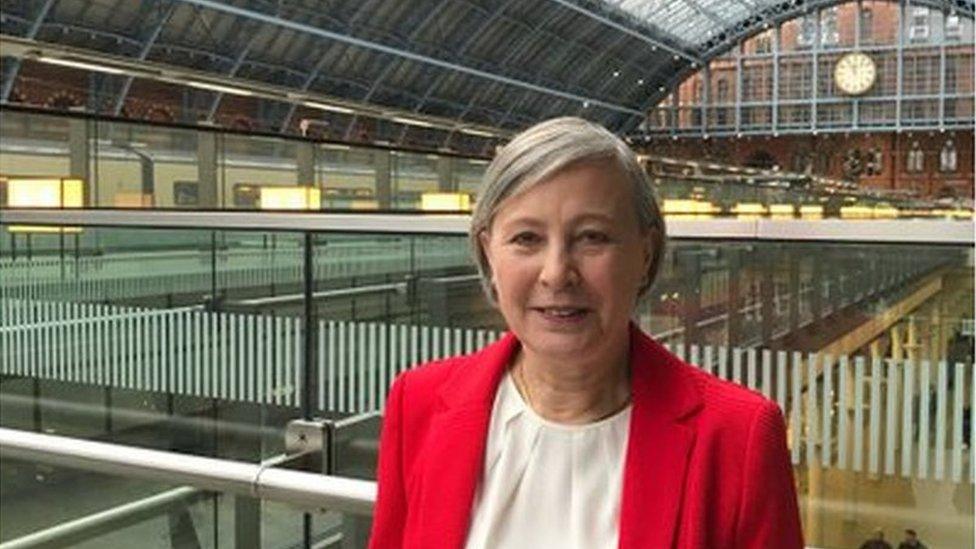
Mary Honeyball decided not to contest the elections for "personal reasons" after serving 20 years in the European Parliament
Ms Honeyball, an MEP for London, said it would be "very disappointing" for a new MEP to have to leave after a few months.
But, she added, candidates had entered the election in full knowledge of the situation with Brexit.
How does an MEP's pay compare with the average worker?
While it may be a short term job, an MEP earns about three times the median full time monthly salary for the UK.
This does not take into account other allowances MEPs have access to.
They are paid €8,757.70 (about £7,599) a month before tax and insurance, external.
The largest gap between the monthly earnings of an MEP and a UK region was in the North East, where a middle-earning full time worker is paid £2,206, about £5,393 less than an MEP.
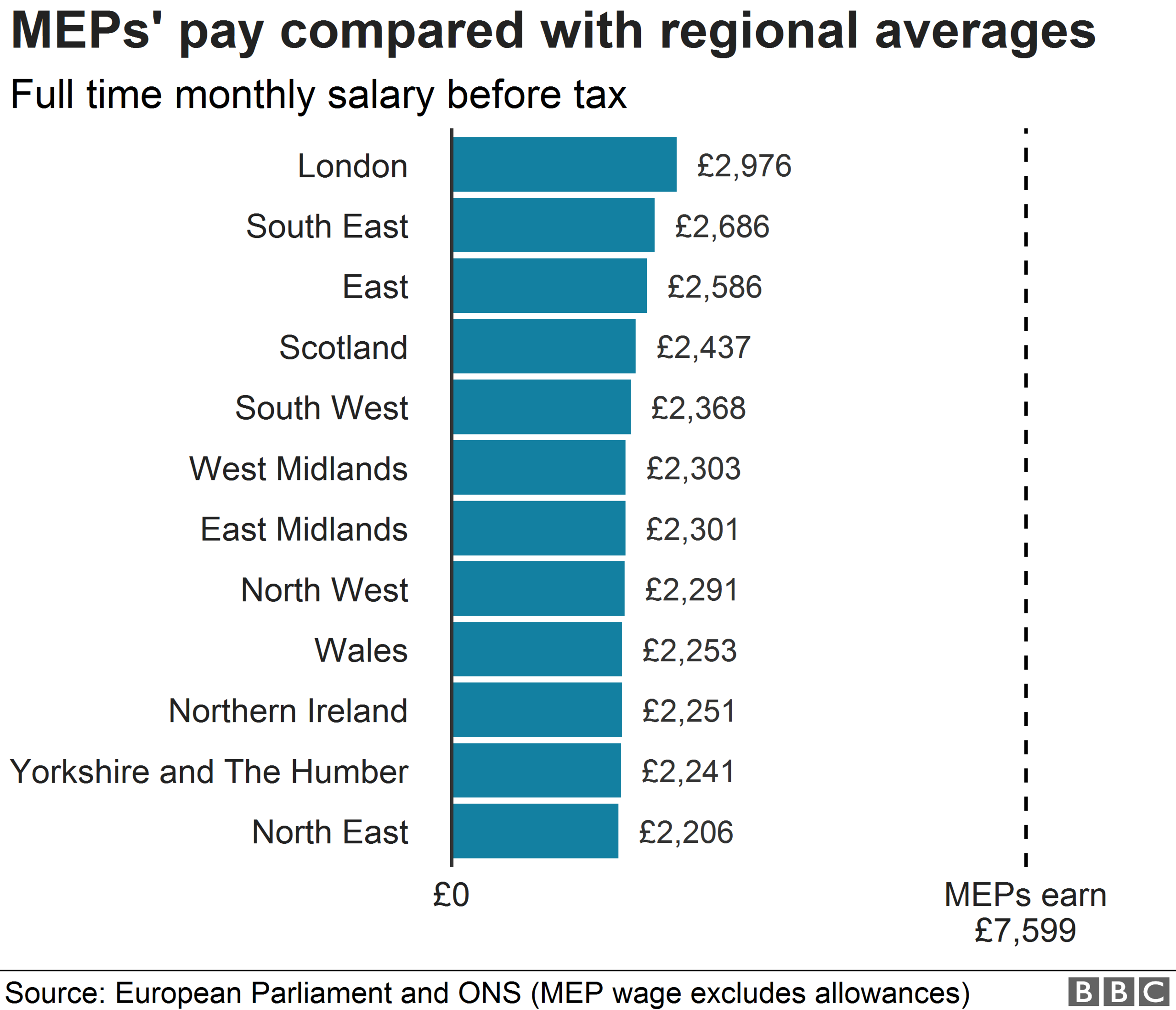
What pay-off will they get when they leave?
When MEPs leave or are voted out of office they are eligible for a "transitional allowance", worth the equivalent of a month's salary for every year in office, up to two years' pay.
However, newly-elected MEPs in the 2019 elections will not qualify for the allowance if the UK leaves the EU by the end of October, as currently planned, because they will not have served a full year.
What do they talk about?
MEPs work on a range of issues, from copyright to mobile phone roaming, fishing rights, data privacy and more.
For UK MEPs, however, Brexit appears to be the overriding issue of concern.
Analysis of their tweets over the past year shows the word "Brexit" was used more than any other.
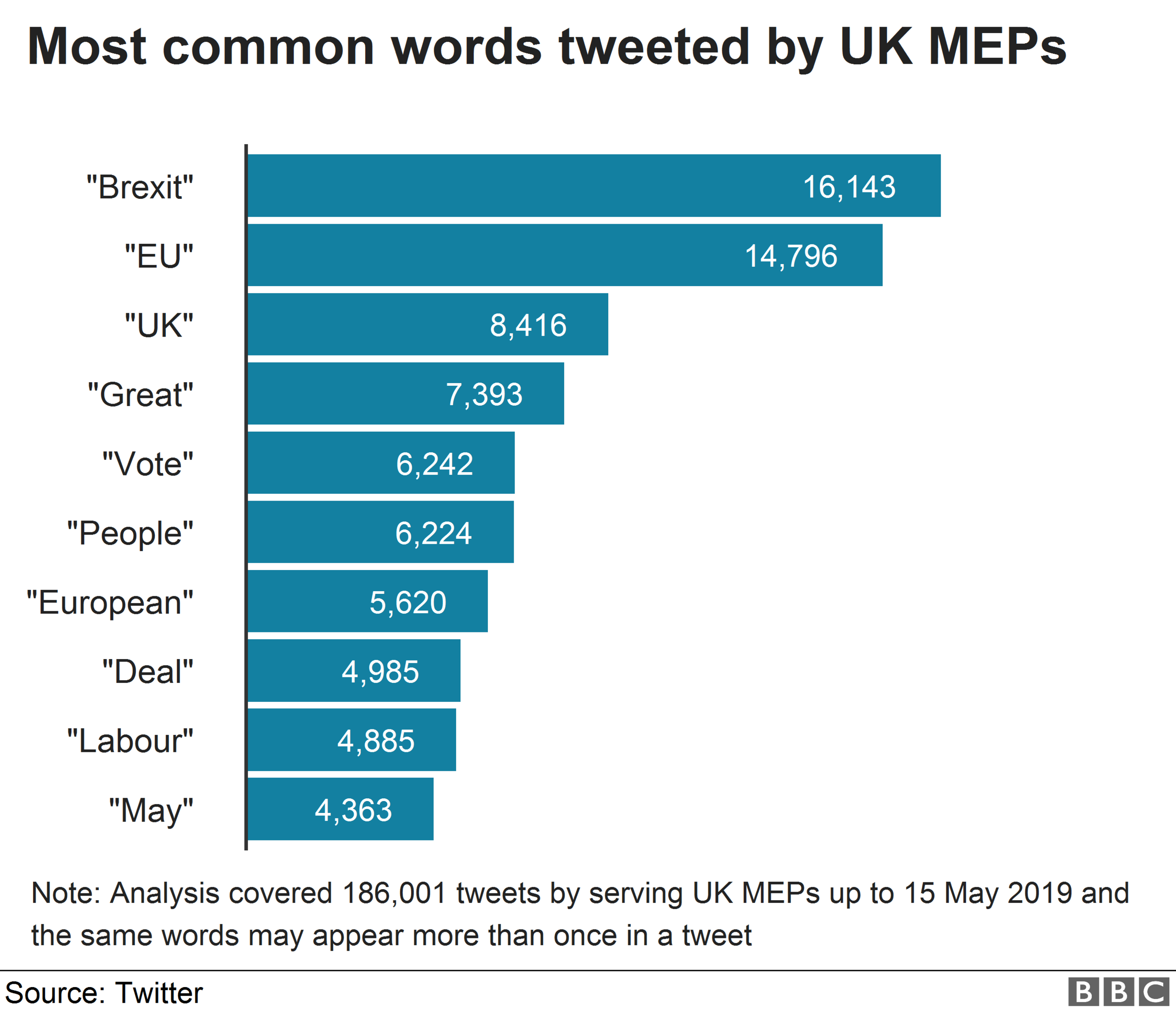
What is the gender balance in the European Parliament?
Currently, the average MEP is 55 years old while women make up about a third of members.
The proportion of female MEPs varies from country to country, from 69% in Finland to 17% in Cyprus.
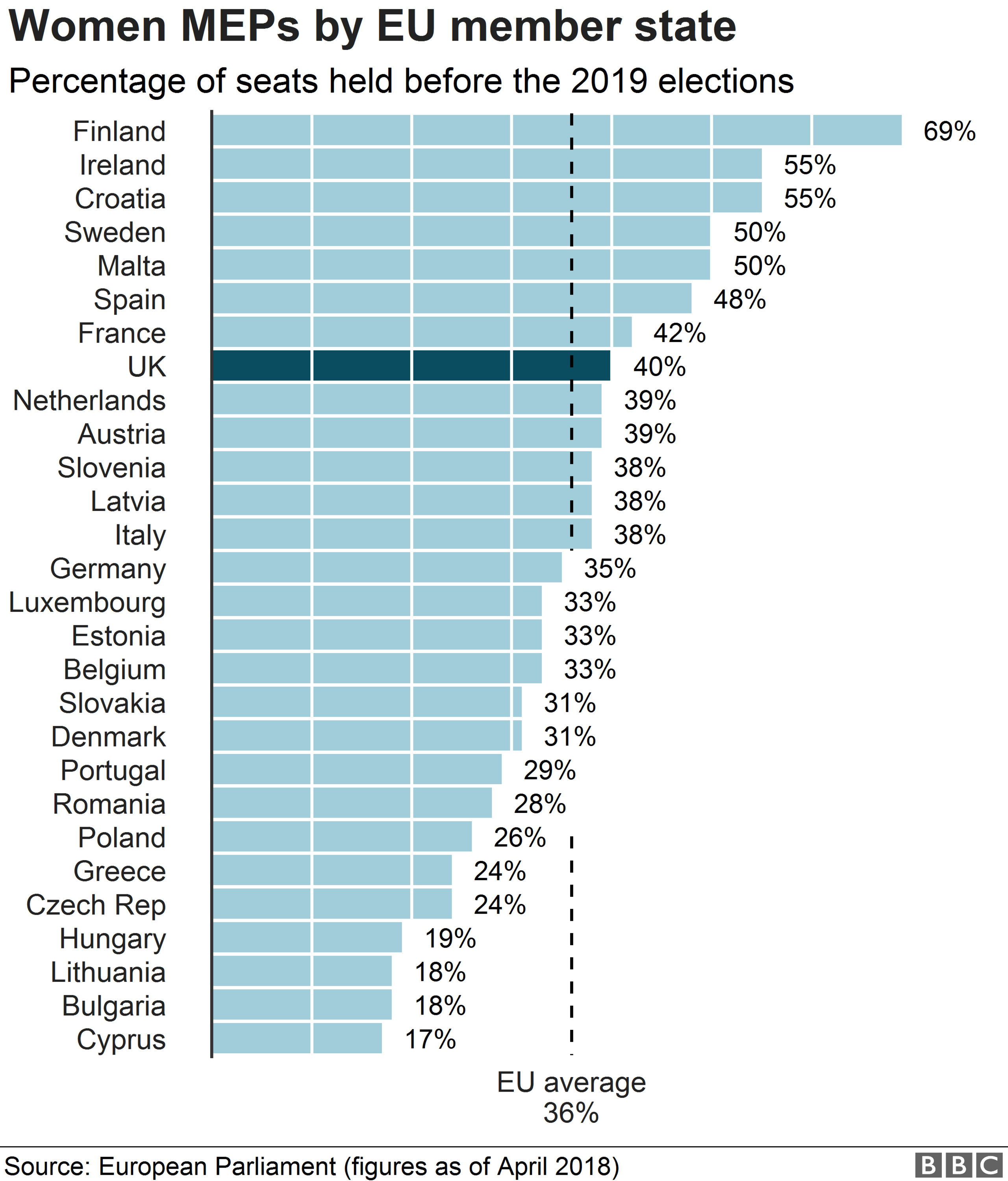

How many people vote?
Across the European Union just over four in every 10 voters (42.6%) turned out in the 2014 elections.
In the UK it was about a third, which is similar to the proportion of people who vote in local council elections.
Turnout was highest in Belgium and Luxembourg but both of these nations had compulsory voting.
It was also officially compulsory in Cyprus but more than half of people still did not vote.
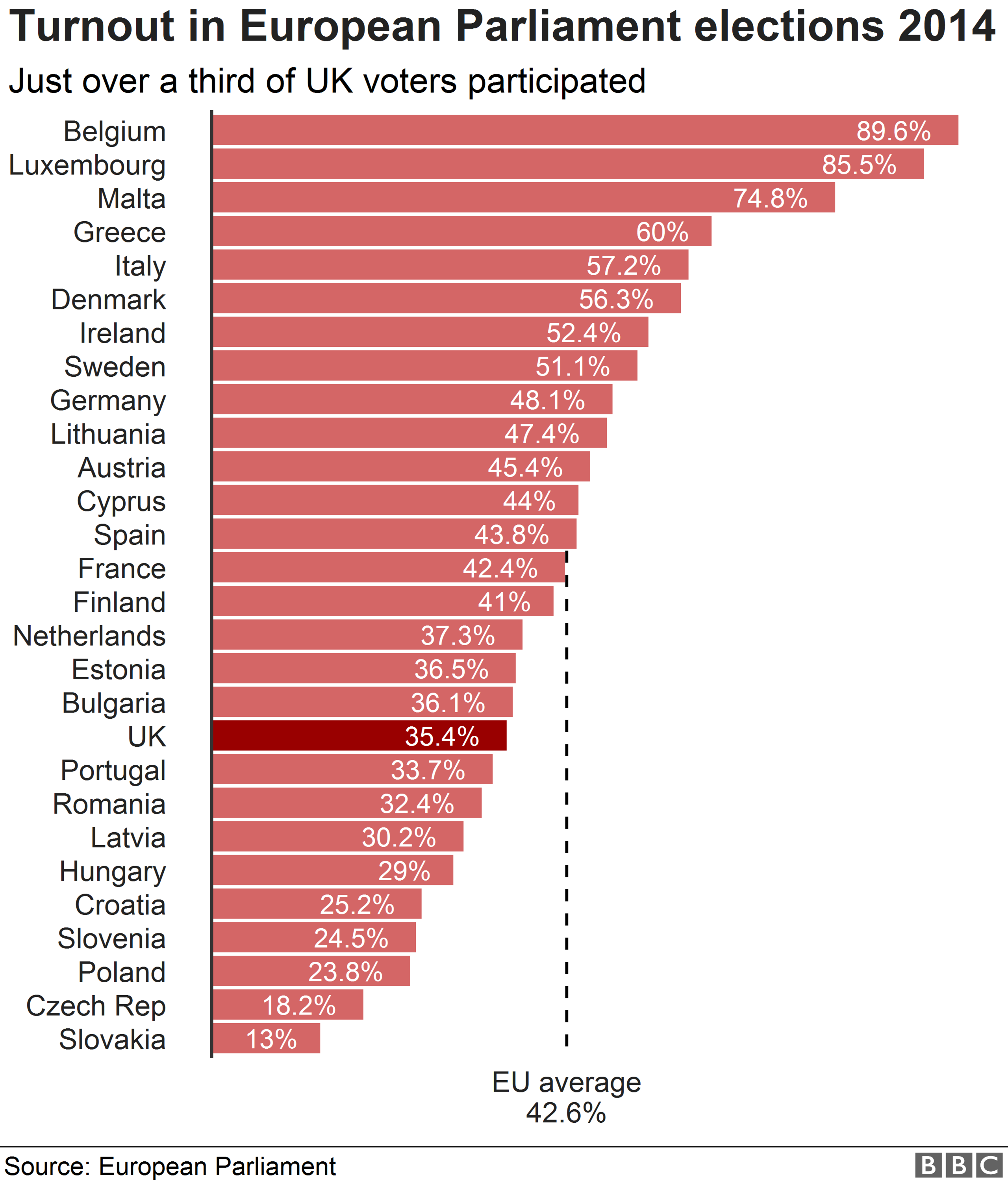

What would you like to know about the forthcoming European Elections? Let us know and a selection will be answered by a BBC journalist.
Use this form to ask your question:
If you are reading this page on the BBC News app, you will need to visit the mobile version of the BBC website to submit your question on this topic.
- Published24 May 2019
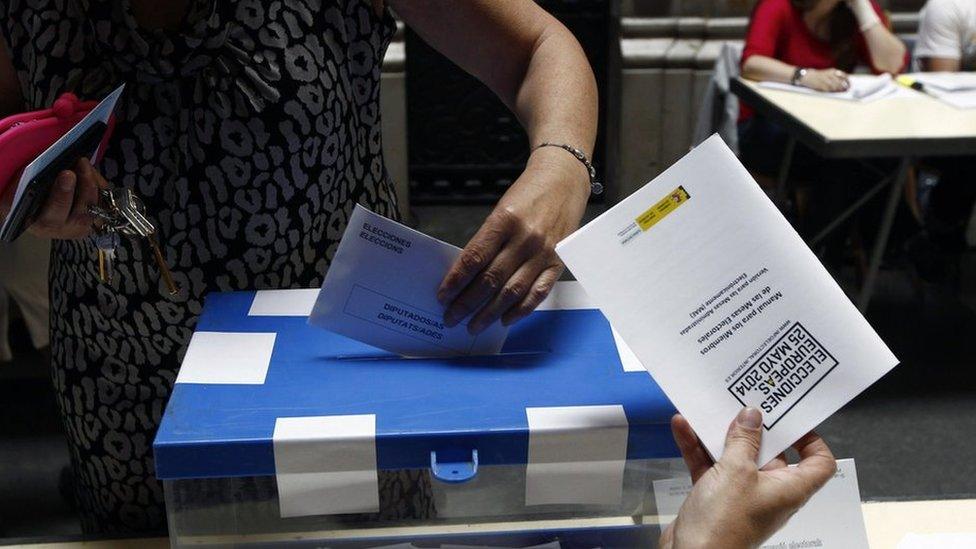
- Published14 May 2019
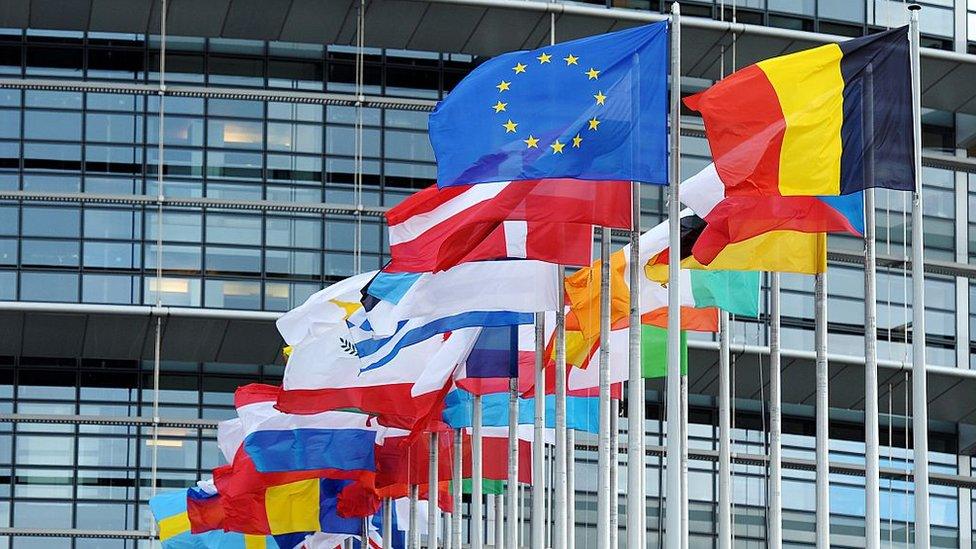
- Published7 May 2019
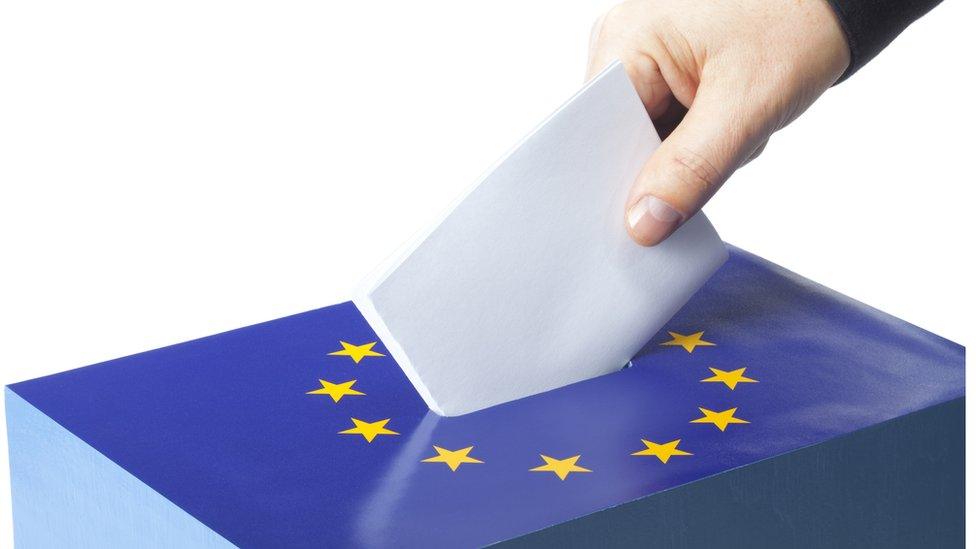
- Published29 April 2019
